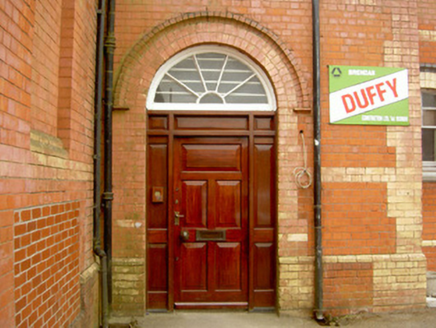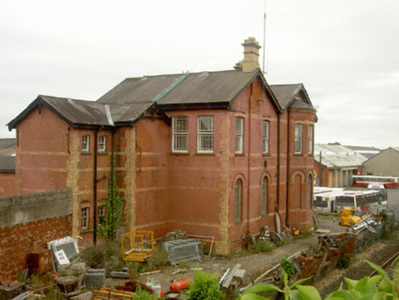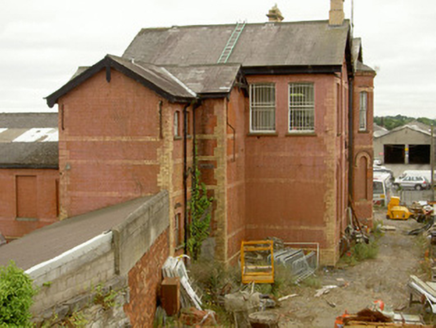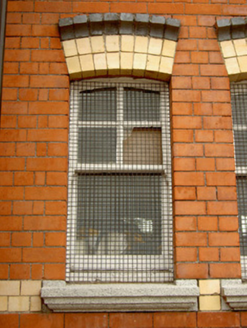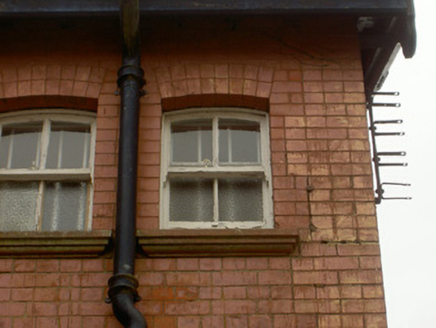Survey Data
Reg No
13707052
Rating
Regional
Categories of Special Interest
Architectural, Social
Previous Name
Dundalk Railway Station
Original Use
Building misc
In Use As
Office
Date
1900 - 1920
Coordinates
304213, 306458
Date Recorded
09/08/2005
Date Updated
--/--/--
Description
Detached four-bay two-storey former railway building, built c. 1910, now used as offices. Double-pile rectangular-plan, full-height canted bay to west, two-bay two-storey T-plan block to north, single-storey long return to east. Pitched slate roofs, clay ridge tiles, yellow brick shouldered corbelled chimneystacks, painted timber bargeboards to gables, cast-iron gutters on painted timber fascia to overhanging eaves. Red brick walling laid in Flemish bond, yellow brick plinth coping, quoins and banding, blank square-headed recessed to return. Round-headed window openings to ground floor, moulded red brick hood mouldings, flush stone sills, painted timber fixed frame windows; camber-headed window openings, moulded red brick hoods, moulded red brick sill, painted one-over-one timber sliding sash windows with margin light to first floor, replacement aluminium window to south; segmental-headed windows to north block, black brick hoods and yellow brick soffits (ground floor) granite sills (ground floor), red brick sills (first floor), four-over-two timber sliding sash windows (ground floor), two-over-two timber sliding sash windows (first floor). Blocked window openings to return. Round-headed door opening to east elevation, red brick hood mouldings, timber five-panel door with side panels, timber spoked fanlight; segmental-headed carriage openings to return, brick soffits, metal sliding doors. Set to east of railway tracks with further railway buildings to south.
Appraisal
This former railway building, part of a complex of works buildings to the south of the railway station, is a striking example of railway architecture. Its attractive design with canted bay and stunning decoration belies its functional origins and allows it to make an aesthetically-pleasing addition to the group of structures which once formed Dundalk Railway Station.
